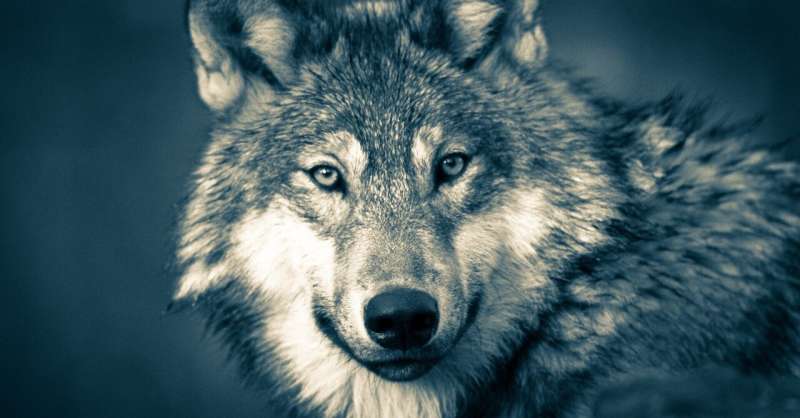This article has been reviewed according to Science X's editorial process and policies. Editors have highlighted the following attributes while ensuring the content's credibility:
fact-checked
peer-reviewed publication
trusted source
proofread
Conserving wildlife can help mitigate climate change by supercharging ecosystem carbon sinks

Protecting wildlife across the world could significantly enhance natural carbon capture and storage by supercharging ecosystem carbon sinks, a new study led by Yale School of the Environment Oastler Professor of Population and Community Ecology Oswald Schmitz has found.
The study, published in Nature Climate Change and co-authored by 15 scientists from eight countries, examined nine wildlife species—marine fish, whales, sharks, gray wolves, wildebeest, sea otters, musk oxen, African forest elephants, and American bison. The data shows that protecting or restoring their populations could collectively facilitate the additional capture of 6.41 billion tons of carbon dioxide annually. This is 95% of the amount needed every year to meet the Paris Agreement target of removing enough carbon from the atmosphere to keep global warming below the 1.5-degree Celsius threshold.
"Wildlife species, throughout their interaction with the environment, are the missing link between biodiversity and climate," Schmitz says. "This interaction means rewilding can be among the best nature-based climate solutions available to humankind."
Wild animals play a critical role controlling the carbon cycle in terrestrial, freshwater and marine ecosystems through a wide range of processes including foraging, nutrient deposition, disturbance, organic carbon deposition, and seed dispersal, Schmitz's research has shown. The dynamics of carbon uptake and storage fundamentally changes with the presence or absence of animals.
Endangering animal populations to the point where they become extinct could flip the ecosystems they inhabit from carbon sinks to carbon sources, according to the research.
The world's wildlife populations have declined by almost 70% in the last 50 years. The study shows that solving the climate crisis and biodiversity crisis are not separate issues and the restoration of animal populations should be included in the scope of nature-based climate solutions, the authors say. Rewilding animal populations to enhance natural carbon capture and storage is known as animating the carbon cycle.
Other high potential species across the world include the African buffalo, white rhino, puma, dingo, Old and New World primates, hornbills, fruit bats, harbor and gray seals, and loggerhead and green turtles, the authors note.
"Natural climate solutions are becoming fundamental to achieve the goals of the Paris Climate Agreement, while creating added opportunity to enhance biodiversity conservation," the study states. "Expanding climate solutions to include animals can help shorten the time horizon over which 500GtCO2 is drawn out of the atmosphere, especially if current opportunities to protect and rapidly recover species populations and the functional intactness of landscapes and seascapes are seized on. To ignore animals leads to missed opportunities to enhance the scope, spatial extent, and range of ecosystems that can be enlisted to help hold climate warming to within 1.5 degrees Celsius."
More information: Oswald J. Schmitz et al, Trophic rewilding can expand natural climate solutions, Nature Climate Change (2023). DOI: 10.1038/s41558-023-01631-6
Journal information: Nature Climate Change
Provided by Yale University




















